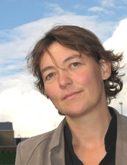Selecting scientific talent for positions and grants is a complex phenomenon. Where peer review traditionally played a dominant role, increasingly, this is replaced by expert (but nonpeer) committees who decide partly based on bibliometrics. From an evaluation and analytical perspective, this is not very satisfying. In talent selection, many criteria are deployed (implicitly or explicitly) that ultimately determine who gets a job or a grant and who doesn’t. As current research mainly focuses on traditional bibliometric performance indicators, we (i) do not understand the process of talent identification very well and as far as the indicators used are (normatively) used, we (ii) misinform decision makers by providing them with wrong (or one sided) indicators.
For selecting scholars for jobs, we showed elsewhere (e.g Van den Besselaar et al 2009) that bibliometric indicators actually do not work very well; interviewing a series of panel members suggests that scholarly independence is seen as a major criteria (Van Arensbergen et al 2013). Therefore we started to develop indicators that show candidates’ independence, but mainly focusing on coauthor networks and topical orientation of the candidates (van den Besselaar et al 2012). Other dimensions should be included, such as the independence of the scientist’s academic network. This project will develop a new more-dimensional concept of independence that combines bibliometrics withweb-based data (e.g. social media, digital CFPS).
-

-
Xiaoli Gou
-

-
Luka Stout
-

-
Peter van den Besselaar
-

-
Paul Groth









































